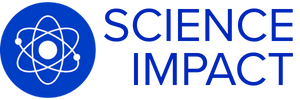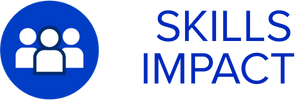Evidence and Impact
.png?width=400&height=400&name=ESSA%20Level%20IV%20Evidence%202024%20(1).png)
Mission.io meets ESSA Level IV standards for evidence-based interventions, as validated by Instructure. Our work is grounded in rigorous research and a clear theory of change. Across hundreds of classrooms, we’ve consistently driven gains in academic performance, engagement, and durable student skills.
Interested in Partnering on Research?
We’re always looking for schools, districts, and educators who want to collaborate with us on research. Whether you’re a teacher or leader open to being a research site, or a grad student or post-doc looking for a thesis or dissertation project, we’d love to connect.

Higher science proficiency in Grades 5 and 6 is correlated with higher school-level Mission.io usage (Mission.io, 2025c).
- A retrospective correlational study of 60 schools in Alpine School District (Utah County, Utah) analyzed school-level science performance for 4th-6th grade across three school years (2021-2023) and compared those results with Mission.io usage.
- Positive correlations were found between Mission.io usage and RISE science assessment scores in 5th grade (r = 0.2723, p < .001) and 6th grade (r = 0.2521, p = .001).
- Tukey’s HSD post-hoc analyses revealed that High Usage schools scored significantly higher than No Usage schools across all grades (Q = 5.71, p = .001), in 5th grade (Q = 5.58, p = .001), and in 6th grade (Q = 5.67, p = .005).
Get the Full Report
.png?width=300&height=100&name=300px%20x%20100px%20(2).png)
Usage of Mission.io boosts reading and data analysis skills in Grades 3 and 5 (Milien et al., 2025)
- A quasi-experimental study was conducted in Spring 2024 to assess the program’s effectiveness in enhancing engagement, motivation, and literacy outcomes. This study was funded through the U.S. Department of Education’s Institute of Education Sciences SBIR Phase IB program. The sample included participants from six elementary schools, involving a total of 17 teachers and approximately 240 students.
- Third-grade students (n=23) demonstrated significant gains in reading (Z = -3.961, p < .001) and data analysis (Z = -3.429, p = .001). Fifth-grade students (n=81) showed similar improvements in both domains (Z = -2.567, p = .010; Z = -3.814, p < .001, respectively. Since the data wasn’t normally distributed, we used a Mann‑Whitney U test—a non‑parametric method that compares mean ranks of pre‑ and post‑test scores. Here, a negative Z score shows post‑test scores ranked higher than pre‑test scores, reflecting improved performance at statistically significant levels.
Get the Full Report
.png?width=300&height=100&name=300px%20x%20100px%20(3).png)
Teachers report improved student engagement and motivation outcomes (Milien et al., 2025, Mission.io, 2025b)
- Treatment group teachers (n=11) in our Spring 2024 quasi-experimental study reported higher student interest in science (+28.3%), motivation to learn (+33.7%), participation (+55.1%), and whole-class engagement (+63.8%) during Missions compared to “normal” classroom conditions. 100% reported that the program aligns with standards, reinforces curriculum, and has a positive impact on student learning.
- In our most recent Spring 2025 Customer Satisfaction Survey, 96.1% of teachers surveyed (n=127) reported Mission.io helps to increase student engagement and participation, and 95.3% stated Mission.io helps to increase student motivation.
Get the Full Report

Mission.io usage has a direct impact on the development of durable skills in students (Langford, 2021; Langford, 2023; Mission.io, 2025b)
- Teachers (n=127) reported that the program had a high impact on the following student skills: collaboration (82.7%), communication (81.1%), and critical thinking (75.6%).
- Weekly program usage drives gains in collaboration (+80%), critical thinking (+44%), initiative (+26%), resilience (+13%), and knowledge (+26%). Through funding and support from the American Society of Engineering Education (ASEE) and the National Science Foundation, post-doctoral researcher Dr. Patricia Langford conducted research into program implementation in 119 schools with groups of K-9 students during the 2020-2021 school year, analyzing skill growth in students after weekly use of the program.
- Dr. Patricia Langford conducted an analysis of the systematic use of the program on the learning and development of social-emotional skills of elementary students. The information derived from program files of 380 schools, 107 school districts, and 19 states. Collaboration showed sustained growth (+.1016 from mean value) as did Critical Thinking (+.424 from mean value).
Get the Full Report
“The first time we ran a mission the students all began to applaud like you see in the videos of NASA control rooms.”
.png?width=150&height=150&name=TinyPNG%20(4).png)
Charity Perry
Kindergarten Teacher
“I've never seen anything reach my kids better and generate more authentic engagement than Mission.io.”
.png?width=150&height=150&name=TinyPNG%20(5).png)
Elijah Thomas
Middle School Science
“The Depth of Knowledge that this program instills in the students is phenomenal and I could never replicate that with a quiz or test.”
.png?width=150&height=150&name=TinyPNG%20logo%20(3).png)
Lisa Perry
5th Grade Teacher
Our R&D Journey
Getting started
 A SBIR Phase I award from the National Science Foundation enabled us to build a gamified, online resource to help students develop 21st-century skills through immersive group STEM simulations.
A SBIR Phase I award from the National Science Foundation enabled us to build a gamified, online resource to help students develop 21st-century skills through immersive group STEM simulations.
Greater expansion
 A SBIR Phase II award (and follow-on funding) from the National Science Foundation allowed for the expansion of the technology to allow for the measurement of real-time skill and performance data on 21st-century skills such as collaboration, critical thinking, initiative, and resilience.
A SBIR Phase II award (and follow-on funding) from the National Science Foundation allowed for the expansion of the technology to allow for the measurement of real-time skill and performance data on 21st-century skills such as collaboration, critical thinking, initiative, and resilience.
Early research
.png?width=86&height=87&name=ASEE%20logo%20(1).png) Through funding and support from the American Society of Engineering Education (ASEE) and NSF, post-doctoral researcher Dr. Patricia Langford conducted research into program implementation in 119 schools with groups of K-9 students during the 2020-2021 school year. She analyzed skill growth in students after weekly use of the program.
Through funding and support from the American Society of Engineering Education (ASEE) and NSF, post-doctoral researcher Dr. Patricia Langford conducted research into program implementation in 119 schools with groups of K-9 students during the 2020-2021 school year. She analyzed skill growth in students after weekly use of the program.
.png?width=1401&height=831&name=Skill%20Growth%20(revised).png)
Systematic usage analysis
![]()
Dr. Patricia Langford conducted an analysis of the systematic use of the program on the learning and development of social-emotional skills of elementary students. The information derived from program files of 380 schools, 107 school districts, and 19 states.
Collaboration showed sustained growth (+.1016 from mean value). Critical Thinking also showed growth (+.424 from mean value). Correlation analysis displayed a strong, positive relationship between Knowledge and Application (.841).
Click HERE to read the full report.
Customer satisfaction survey
![]()
Our bi-annual customer satisfaction survey of Spring 2023 showed that the program was utilized by 1,275 teachers and 85,400 students in 379 schools during the 2022-2023 school year. Teachers (N=184) reported that the program had a significant/high impact on critical thinking (73%), problem-solving (82%), communication (82%), positive classroom environment (82%), and interest in science (74%).


Almost every teacher survey conducted in recent years revealed a desire for significant content expansion, particularly into subject areas beyond STEM. This common theme in feedback led the team to start exploring literacy integration and expansion into new content areas.
Literacy integration


We received a SBIR Phase IB award from the U.S. Department of Education’s Institute of Education Sciences to develop a cross-curricular literacy branch of our program. With this funding, our team developed a cross-curricular literacy prototype for Grades 3-5 to integrate literacy skills into our existing gamified K-8 program by embedding reading, writing, and speaking tasks into the core program’s standards-based STEM missions.
First quasi-experimental study


To evaluate the prototype created during Phase IB, a quasi-experimental pilot study was conducted in partnership with Dr. Patricia Langford and Dr. Jadelyn Abbott of Weber State University to assess the prototype's effectiveness in enhancing engagement, motivation, and literacy outcomes. The sample included participants from six elementary schools, involving a total of 17 teachers and approximately 220 students.
Click HERE to read the usability and feasibility report. The full study including a detailed analysis of student literacy and engagement outcomes will be published soon.
ESSA Level IV
 Mission.io now meets Level IV evidence requirements in compliance with the Every Student Succeeds Act (ESSA) as validated by third-party organization LearnPlatform by Instructure. This means that our program has demonstrated a strong theoretical rationale and logic model based on rigorous research.
Mission.io now meets Level IV evidence requirements in compliance with the Every Student Succeeds Act (ESSA) as validated by third-party organization LearnPlatform by Instructure. This means that our program has demonstrated a strong theoretical rationale and logic model based on rigorous research.
Click HERE to view our full report and supporting ESSA Level IV documentation.
Future research partnerships
We are currently actively pursuing several research partnerships and exciting opportunities that will lead to more research into program efficacy in 2025 (and beyond)!


We'd love to partner with you! If you are a researcher or graduate student who is interested in conducting research into our program, please get in touch below! Or if you'd like to be a district or school research partner, let us know.
Interested in being a research partner?
